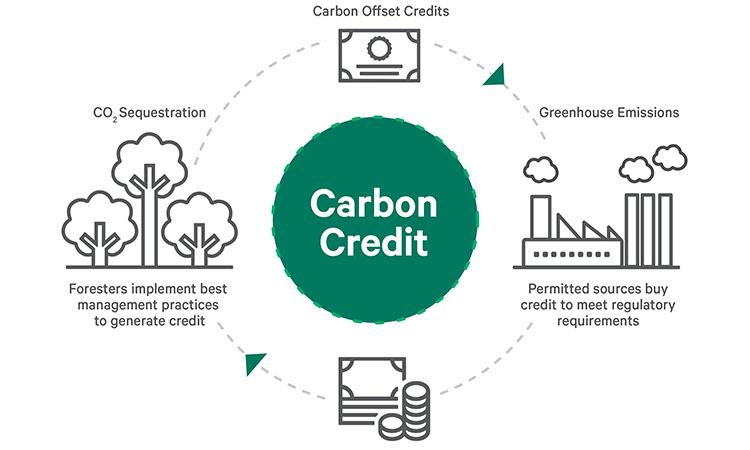A revamped approach to carbon credits is gaining traction, aiming to address concerns about effectiveness and fairness while offering potential benefits for a wider range of stakeholders.
This new framework, still under development, focuses on creating "enhanced carbon credits" that go beyond simply offsetting emissions. These credits would not only represent verified emission reductions, but also demonstrate additional positive environmental and social impacts.
Proponents argue that this broader approach can address criticisms aimed at traditional carbon credits, which have sometimes been accused of lacking transparency or failing to deliver lasting environmental benefits. By incorporating additional factors like biodiversity protection or community development alongside verified carbon reductions, enhanced credits aim to create a more holistic solution.
For companies looking to offset their emissions, enhanced credits offer a way to not only fulfill their sustainability goals but also contribute to broader positive change. This can be particularly appealing to companies facing increasing pressure from consumers and investors to demonstrate their commitment to environmental, social, and governance (ESG) principles.
Project developers, the entities responsible for generating carbon credits through initiatives like renewable energy projects or forest conservation, stand to benefit from the potential for increased demand and higher prices for enhanced credits. This could incentivize the development of more impactful projects that address multiple sustainability challenges simultaneously.
However, the successful implementation of this new approach hinges on addressing several key challenges. Robust verification and monitoring systems are crucial to ensure the legitimacy of the additional benefits claimed by enhanced credits. Additionally, clear standards and methodologies need to be established to define and assess these additional benefits consistently.
Another critical aspect is ensuring that enhanced credits genuinely contribute to positive change for local communities, particularly in developing countries where many carbon offset projects are located. This requires careful project design, community engagement, and safeguards against potential harm or displacement.
Despite these challenges, the potential benefits of enhanced carbon credits are attracting growing interest from various stakeholders. If successfully implemented, this new approach could contribute significantly to achieving global climate goals while promoting broader environmental and social development.
However, concerns remain regarding the potential for greenwashing and the need for robust governance to ensure the integrity of the system. The future of enhanced carbon credits will depend on addressing these challenges and ensuring that this innovative approach delivers on its promise of a more sustainable and equitable future.

